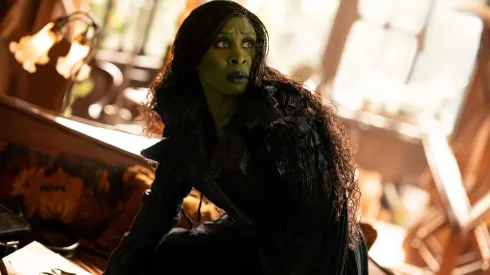The world of Broadway, shaped by the intimate spectacle of a single live performance, often feels a universe away from the kinetic, global scale of Hollywood cinema. Yet the gap narrows with titles like “Wicked: For Good“, which now holds the record for the biggest global opening for a theater adaptation, grossing $226 million.
These are the stage-to-screen adaptations—not merely translations of a script, but ambitious metamorphic projects attempting to capture the ephemeral magic of theater and convert it into enduring celluloid gold.
For every production that falters in the journey across mediums, there exists a rare, spectacular triumph: a musical or play that finds its voice amplified a thousandfold, ascending from a theatrical hit to a true box office behemoth, proving that the heart of a great story is boundless.
The Sound of Music (1965)
The unchallenged monarch of musical adaptations when measured by the sheer volume of tickets sold, this Rodgers and Hammerstein classic stands as one of the highest-grossing films of all time in any genre, adjusted for inflation. The story of the Von Trapp family and Julie Andrews’ unforgettable performance transcended the stage to become a global cinematic institution, proving the eternal power of its score and deeply resonant themes.
The Lion King (1994)
While the stage musical is a phenomenon in its own right, the animated film, which provides the source material for the Broadway show, is a colossal box office entry. Its worldwide gross, which approaches $1 billion in its original run and well over $2 billion when factoring in its 2019 “live-action” (CGI) remake and 3D re-releases, makes it one of the most financially dominant theatrical adaptations in history.
Mary Poppins (1964)
A beloved Disney classic based on the books and influenced by its later stage adaptation, this film remains a cornerstone of Hollywood’s Golden Age of musicals. Driven by groundbreaking visual effects and the iconic, Oscar-winning performance of Julie Andrews, its massive ticket sales across decades of re-releases secure its spot as a titanic financial success, adjusted for its enduring run.
Grease (1978)
A vibrant cultural explosion that captured the spirit of a generation, this adaptation of the 1971 stage musical became a phenomenon fueled by a legendary soundtrack and the electrifying chemistry of its lead stars. Its adjusted gross reflects its status as a timeless classic that audiences have enthusiastically revisited through multiple theatrical runs and re-releases since its initial debut.
West Side Story (1961)
The cinematic translation of the beloved Shakespearean tragedy set to Leonard Bernstein’s electric score captivated critics and audiences alike. As a Best Picture winner, the film’s massive commercial appeal upon release cemented the musical’s place in the American cultural lexicon, commanding an adjusted box office total that speaks to its universal, tragic beauty.
My Fair Lady (1964)
Another Best Picture winner that perfectly channeled the charm and wit of the original stage production. The film adaptation of this classic Lerner and Loewe musical, led by Rex Harrison and Audrey Hepburn, was an immediate commercial sensation, successfully translating its sophisticated humor and timeless songs to a global audience with huge financial results.
Wicked (2024)
One of the most recent entries, this adaptation has demonstrated phenomenal, unadjusted box office power in the modern era. Its rapid domestic and global success, soaring past many previous records, suggests that its final, inflation-adjusted total will secure its place among the greatest screen adaptations, driven by its massive cultural footprint and dedicated fanbase.
Mamma Mia! (2008)
The ultimate feel-good cinematic adaptation, this film successfully leveraged the power of ABBA’s music and a stunning Grecian backdrop. Its massive, unexpected worldwide gross proved the commercial viability of modern movie musicals, achieving a remarkably high return on investment and becoming one of the 21st century’s definitive musical film successes.
Les Misérables (2012)
Translating the epic scale and emotional weight of the French Revolution-era musical was a monumental task, and the star-studded adaptation was a resounding financial success. Its box office performance was propelled by the novelty of actors singing live on set, drawing huge crowds and demonstrating the appeal of grand, dramatic storytelling from the stage.
Chicago (2002)
Credited with revitalizing the entire movie musical genre, this stylish, dark, and complex adaptation won the Oscar for Best Picture. Its commercial success proved that a modern musical, one that blended dazzling stage choreography with sharp cinematic editing, could thrive financially, paving the way for the numerous stage adaptations that followed.
